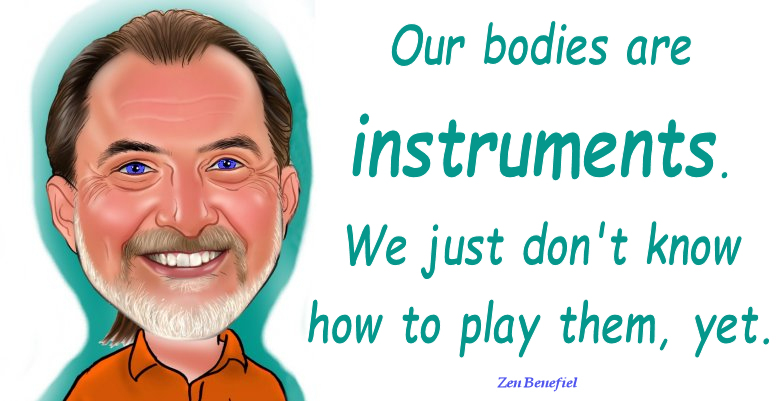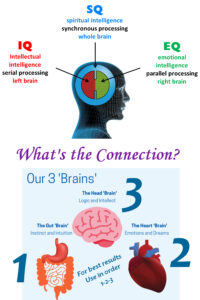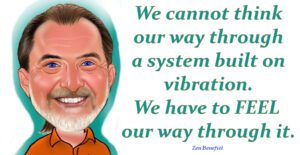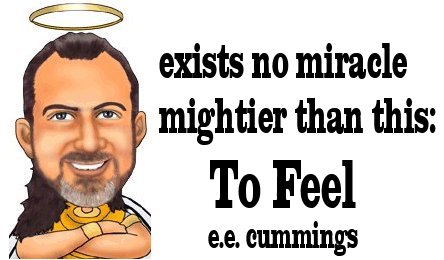
Vetting Information Necessary for Our Lives
Vetting Information for Truth
CONSTRUCTS OF BELIEF
Vetting information necessary to our lives is of great concern today, especially after the global kerfuffle on our way to a great weset. How do we qualify information as it enters our ‘field’? The resonance of truth varies depending on our ability to be aware at deeper levels. We have a ‘field’ that surrounds us, a kind of ‘spidey sense’ that we often neglect.
How do we ‘vet’ the information and people providing it so that the quality is there; so that sense is made common? We’ve heard about the notion of ‘questioning authority’ yet the authority we question often has bias in our questions. The solution is to ask better questions, vetting information with those questions that arise naturally from our gut feelings.
It would seem that a consistent method for discerning or discovering truth, even if relative, would be available to the intentional seeker and even the average Jane or Joe. Of course there are varying degrees of the depth of the quest for truth, from cursory to quantum, yet consistency is key. If we accept that we have built-in bullshit meters, then we can at least begin to discover them within our awareness.
 This consideration has been at the forefront of my professional life as well, facilitating people, places and things to achieve goals, and the drive to make sense common so that a ‘resonance’ of the prudent path can be felt and therefore acknowledged as being the best direction at the time for the team. A heightened awareness helps to expose and resolve hidden agendas without being adversarial or confrontational with project leaders and team.
This consideration has been at the forefront of my professional life as well, facilitating people, places and things to achieve goals, and the drive to make sense common so that a ‘resonance’ of the prudent path can be felt and therefore acknowledged as being the best direction at the time for the team. A heightened awareness helps to expose and resolve hidden agendas without being adversarial or confrontational with project leaders and team.
What kind of tell-tale signs does ‘truth’ have in this, or any, environment? Do we have a process for vetting information, or do we pretend to be deaf, dumb and blind?
Perhaps truth, vibrationally speaking, is like a covalent bond where electrons are shared in a kind of quantum entanglement. The resonance of truth occurs in the receiver as well as the transmitter whether person, place or thing. Our bodies are both, so it would make sense that the reciprocal resonance is at least felt if not understood.
We aren’t accustomed to relying on feelings or sensations, though. That’s where things get a little messy for a time while we explore and practice honing our skills. In an interview with Tucker Carlson, Mattias Desmet, author of The Psychology of Totalinarianism, percieves we, as humans, are really seeking empathic resonance; evidcence of loving and being loved and communicated with authentically.
Here’s some considerations from the works of Brent Cunningham… makes sense common. We can begin a conversation to help make sense common for you.
POPULAR REASONS WHY PEOPLE BELIEVE
Before we take a look at what I think are the three essential tests for evaluating any truth-claims, let’s briefly look at some popular, but less than stellar reasons often used by people to test whether or not something is true—the claim and then a response:
- Instinct— “It seems true to me.”
To this statement we must simply ask . . .
. . . Why? What is guiding one’s instinctual ability to judge between competing truth-claims?
2. Feelings — “I like the feeling I get.” or “It feels right.”
. . . Can feelings be mistaken?
3. Wish fulfillment — “The God that I (want to) believe in would never send someone to hell.”
. . . Maybe not, but the God one wants to believe in may not be the God who actually exists. We can never determine objective truth simply by what we want to be true.
4. Custom — “This is the way I / my family / my culture has always been.”
. . . Can they be mistaken? What if one came from a Nazi background?
5. Popularity contest — “Well, ‘everyone’ believes it.”
. . . Again, can ‘everyone’ be wrong? Counting noses is never a good means of determining truth.
6. Pragmatism — “It works for me, therefore it must be true.”
. . . However, almost anything can ‘work’ for a time. Truth works overall. For instance, a belief may ‘work’ at ridding oneself of guilt by denying it rather than absolving it.
7. Significance — “It gives my life meaning.”
. . . Is the meaning simply the result of wish-fulfillment or is it connected with reality?
 Obviously, all of the above reasons for believing something to be true seem deficient and not the best tests to determine whether or not a truth-claim is really true (although, #s 6 & 7 do seem to be better candidates that #s 1-5). Nevertheless, I think there are three criterion for testing truth-claims which, when used together, offer us the best chances of determining true beliefs. Here they are.
Obviously, all of the above reasons for believing something to be true seem deficient and not the best tests to determine whether or not a truth-claim is really true (although, #s 6 & 7 do seem to be better candidates that #s 1-5). Nevertheless, I think there are three criterion for testing truth-claims which, when used together, offer us the best chances of determining true beliefs. Here they are.
- Internal Coherence — This is a test for rational consistency in ufology information. This asks if a belief makes sense? We need to determine whether beliefs are rationally consistent within themselves and in relation to others beliefs of one’s larger worldview. Some beliefs are known to be self-referentially inconsistent, or self-defeating. An example might be the belief that all “knowledge” is scientific knowledge. This is obviously self-defeating because the belief itself is not a scientific statement. Therefore, the belief dies by its own standard for knowledge.
Another way a belief can fail this test is when two beliefs are in contradiction with each other, meaning that at least one of the beliefs must be false. So, we must ask if the beliefs hold together? For example, if a person is a Naturalist (believing that human life is accidental, random, and without ultimate purpose), he cannot then introduce the belief that we have an objective moral obligation to treat another person justly or with kindness.
- External Correspondence — This test asks if a belief fits the facts of reality in ufology information. Does it correspond to the real world? Proposed truth-claims must have explanatory power, or the ability to give account for our experience of the world (whether it be history, science, psychology, human nature, etc.). For instance, a worldview can be tested by its ability to explain cosmological questions like the origin of the universe; anthropological questions like the existence of minds and free will; moral questions like the existence of evil and our experience with guilt.
Further, the explanatory power of truth-claims should (a) be comprehensive in scope—able to explain more or better than alternative theories; (b) have predictive power—suggesting new evidence and problems; (c) have precision—accounting for more details; (d) be illuminating—integrating otherwise unrelated data; (e) avoid ad hoc hypotheses—functioning only to explain away counter-evidence; (f) be simple—not needlessly multiplying the basic concepts, assumptions, and principles of an explanation.
- Functional Adequacy — This tests the livability of a truth-claim as a belief in ufology information. Is it a viable belief “on the street”? Does it work in real life? Some views sound good on paper, but are proven false in the laboratory of life. Consider an eastern guru who asserts that the physical world is an illusion, yet he still looks both ways before crossing the street. A person cannot live out such an illusory belief of the world for very long (or he’ll be hit by a bus before long!). Even more than that, a belief system must integrate one’s life. It must incorporate and meet the deepest human needs.
SUMMARY
In evaluating the truth or falsity of propositions/truth-claims/belief of information, we must be sure to always look for three things: internal coherence (the logical), external correspondence (the factual), and functional adequacy (the livable). For a belief to be true it must be meaningful, it must line up with the real world, and it must not only help us survive in daily life, but allow us to flourish. Consequently, these are also the three areas in which our thinking can and does go wrong: logic, facts, and values.
VETTING INFORMATION – APPLIED UNDERSTANDING – RESONANCE OF TRUTH
 In the field of personal development and/or spiritual growth there is so much need for vetting information that has no solid proof, no tangible substance to validate the resonance of truth, other than the ability sense the resonance or truth of any situation. We all wish this was different, yet beyond the little credible and tangible material we have, much is still in the subjective realms of experience, often bereft of the cognitive skills to manage, let alone interpret, ‘sensory’ events.
In the field of personal development and/or spiritual growth there is so much need for vetting information that has no solid proof, no tangible substance to validate the resonance of truth, other than the ability sense the resonance or truth of any situation. We all wish this was different, yet beyond the little credible and tangible material we have, much is still in the subjective realms of experience, often bereft of the cognitive skills to manage, let alone interpret, ‘sensory’ events.
Truth is discoverable, of course, yet we have to run it through all the tests for coherence, correspondence and adequacy. There is a resonance of truth that meets all the above standards, a measurable sensation within our array of receptors. Well-developed receptors have already been categorized and labeled as the ‘clair-alls’* of extra-sensory perception in vetting information. We all have them but few actually use them, probably because of the ‘I want to believe’ factor within Ufology.
Consciousness, not just sentience, is the prevailing discovery of the time. Consciousness in the sense of a connected awareness and experience of a greater theme in our lives, an experiential reality that bridges quantum (discrete) with the gross (whole). The resonance of truth contains both cohesion and coherence and is what we can sense with the finer senses within our awareness. It is the challenge of accessing and practicing these senses that is our current challenge.
The constructs of reality also have significance, even if we don’t understand the laws or principles involved. For instance, the The Triadic Dimensional-Distinction Vortical Paradigm is a metaparadigmatic model developed equally by Drs. Vernon Neppe and Edward Close. In essence, it demonstrates that consciousness, space and time are tethered together across nine dimensions, not excluding there are more.
It would seem there is a singular or individuated consciousness that is distributed across dimensions yet capable of observing each. This video shares some important information relating to the topic of Ufology, one of my passions in life that certainly has left a lot of questions from my own experiences. The process of integrating experiences and the options for consideration prompted me to write a seminal book: Stubbing My T.O.E. on Purpose.



